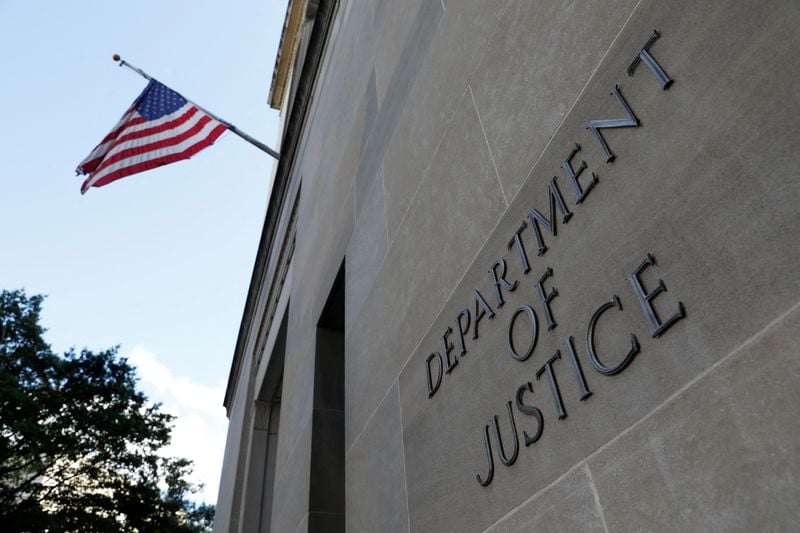OAKLAND–A federal grand jury handed down an indictment charging Dileep Kumar Reddy Kamujula with securities fraud in connection with alleged illegal securities trading based on inside information obtained from an employee of San Francisco-based cloud communications company Twilio, Inc. (Twilio), announced U.S. Attorney Stephanie M. Hinds, and Federal Bureau of Investigation Acting Special Agent in Charge Timothy M. Stone.
“The charges in this indictment relate to a scheme to profit on the confidential information of a San Francisco-based public company to gain an illegal edge in the stock market,” said U.S. Attorney Hinds. “This Office will continue to aggressively pursue this type of securities fraud because it threatens the integrity of the markets and hurts everyone who plays by the rules.”
“Insider trading is not a game – it’s a federal crime,” said Acting Special Agent in Charge Stone. “This investigation should be a forceful disincentive for those tempted to commit any type of securities fraud. The FBI and our partners will take decisive action against those who seek to illegally exploit material nonpublic corporate information for their own gain.”
According to the indictment unsealed today, Kamujula, 35, of Fremont, Calif., illegally traded in Twilio stock options after receiving material nonpublic information from an employee identified in the indictment as “Insider One.” The indictment alleges that as part of Insider One’s employment, the employee had regular access to a financial records system used by Twilio to monitor and account for customer sales. Insider One allegedly accessed confidential information concerning Twilio’s financial results before those results were made public and passed on the information to Kamujula. The indictment alleges that Twilio maintained written policies prohibiting the dissemination of such material nonpublic and confidential information. Twilio also had policies that restricted all employees from trading in the company’s securities during time periods around earnings releases. In addition, the indictment alleges that the employee breached a duty to maintain the confidentiality of the information and that Kamujula knew Insider One breached that duty when the employee provided the tipped information.
The indictment describes how Kamujula obtained and used insider information in the Spring of 2020 for his own gain. According to the indictment, beginning April of 2020, Insider One provided Kamujula with confidential nonpublic information regarding Twilio’s financial results before those results were publicly disclosed. Around this time, Twilio accounting employees were in the process of determining the financial results of the company during that quarter, including the preparation of the SEC Form 10-Q that would be filed with the SEC and contain the financial reports for the quarter. The indictment alleges that between April 9, 2020, and May 6, 2020, Kamujula purchased approximately 257 call options for a total cost of approximately $133,333. Then, on May 6, 2020, Twilio announced its quarterly earnings, and in that press release Twilio reported earnings of $0.06 per share, a profit that exceeded the Wall Street analyst consensus estimate of earnings. On May 7, 2020, the day after the financial results were reported, Twilio’s stock price increased by nearly 40 percent. The indictment alleges that after the announcement, on or about May 7 and May 8, 2020, Kamujula sold all 257 Twilio call options he had acquired in the preceding four weeks for a total profit of approximately $961,662.
Kamujula is charged with two counts, and a forfeiture allegation. The first count charges a violation of 18 U.S.C. §§ 1348 and 2, and the second count charges a violation of 15 U.S.C. §§ 78j(b) and 78ff and 17 C.F.R. §§ 240, 10b-5, and 240.10b5-1 (also referred to as Section 10(b) of the Securities Exchange Act of 1933 and Rule 10b-5 thereunder). The maximum statutory penalty for a violation of 18 U.S.C. § 1348 is 25 years in prison and a $250,000 fine (or twice the gross gain made from the offense). The maximum statutory penalty for a violation of 15 U.S.C. §§ 78j(b) and 78ff and 17 C.F.R. §§ 240, 10b-5, and 240.10b5-1 is 20 years in prison and a $5 million fine. The court may order additional terms of supervised release, as well as additional monetary penalties and restitution. However, any sentence following conviction would be imposed by the court only after consideration of the U.S. Sentencing Guidelines and the federal statute governing the imposition of a sentence, 18 U.S.C. § 3553.
An indictment merely alleges that crimes have been committed, and defendants are presumed innocent until proven guilty beyond a reasonable doubt.
Kamujula made his initial federal court appearance this morning before U.S. Magistrate Judge Donna M. Ryu and was released on secured bond. Magistrate Judge Ryu scheduled Kamujula’s next appearance for April 22, 2022, for a status conference before U.S. District Judge Jon S. Tigar.
In a separate civil action, the United States Securities and Exchange Commission filed civil charges against Kamujula, alleging he engaged in insider trading, and against five other individuals, alleging they violated securities laws in connection with trading in Twilio securities.
The case is being prosecuted by the Corporate and Securities Fraud Section of the U.S. Attorney’s Office for the Northern District of California. The prosecution is the result of an investigation by the FBI. The U.S. Attorney’s Office appreciates the assistance of the San Francisco Regional Office of the Securities and Exchange Commission and FINRA.
